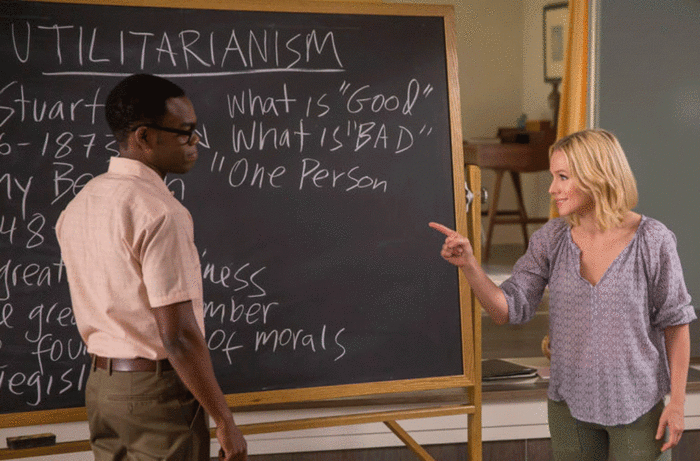Oct 17 2019
Are We All Hypocrites?
 Recently celebrity supporters of Extinction Rebellion, a protest group calling for aggressive action on climate change, signed a letter admitting to being hypocrites. They state:
Recently celebrity supporters of Extinction Rebellion, a protest group calling for aggressive action on climate change, signed a letter admitting to being hypocrites. They state:
“Dear journalists who have called us hypocrites. You’re right. We live high carbon lives and the industries that we are part of have huge carbon footprints.”
But they go on to say:
“Like you, and everyone else, we are stuck in this fossil-fuel economy and without systemic change, our lifestyles will keep on causing climate and ecological harm.”
Their letter highlights an interesting conflict between personal responsibility and collective responsibility. How much is it on all of us as individuals to make sacrifices, or at least make a reasonable effort, to limit our carbon footprint? Coincidentally there was an interesting take on this question in the latest season of The Good Place (spoiler ahead). The lead characters discover that no one has made it into the Good Place in over 500 years. At first they think that the Bad Place has managed to hack the system in their favor, but ultimately discover that this reality is just an unintended consequence of modern life.
Cosmic points are awarded to individuals based on their actions, but the point system considers all consequences, intended or not, no matter how remote. So buying flowers for your grandmother may earn you points, but you lose more points because the money for those flowers found their way ultimately to a corporation using child labor. The interconnectedness of our global economy has made it literally impossible to be good.
So what do we do? Are we all hypocrites?
As in all things, I think there is a balance. I agree with the celebrity letter writers that the optimal solution is systemic change. There are two primary reasons for this. One – systemic change is much more effective than trying to get each individual to change. Second, people have limited knowledge, bandwidth, and resources in order to live a pristine life. Even just considering one’s carbon footprint, you can turn your life upside down trying to be a good citizen. But what about plastic waste, and the ethics of every single corporation you support, either directly or indirectly, with your purchases? How much time, energy, and money should we commit to recycling, composting, and researching our purchases?
Further, will doing so contribute to a culture of shame, with mostly people who have the privilege of disposable income and disposable time shaming those with fewer choices available?
It’s also extremely difficult, even for those with good intentions and the resources to do so. The culture of shame leads to a culture of smugness, with being a good citizen becoming a fashion accessory. This further leads to fads and pseudoscience. I see people on a regular basis doing things that they think are good for the environment, when they are not (like buying organic or local). Meanwhile public awareness about real things they can do to lower their carbon footprint, like keeping their tires well-inflated, are virtually ignored. When was the last time you saw a PSA about tire pressure?
On the other hand, we should not use all of this complexity to wash our hands, like I think the celebrities are doing. It is singularly unconvincing for millionaires to complain that they are stuck in the system and powerless to make change. This may partly be due to the fact that after being a celebrity for a time they lose any sense of what is normal or typical. For them not jetting around the world is simply not on the table.
So what can we reasonably expect from people in terms of their personal responsibility? I do think there is a reasonable compromise in which individuals take responsibility for their impact on the world, but aren’t expected to shoulder the entire burden or turn their life upside down. We can all take responsibility for our own homes, for example. Use LED bulbs, make sure your home is energy efficient, minimize “energy vampires”, don’t over heat or cool your house, and turn off the lights when not being used. This is just basic efficiency hygiene.
And then, pay basic attention to how the world works, and find resources that you trust to give you the bottom line scientific information on big lifestyle choices. This can be admittedly tricky, because there is going to be a lot of misinformation out there. But this is where there is a legitimate role for government and scientific institutions. Make it as easy as possible for people to be good citizens, by giving them accurate information, debunking myths and misinformation, and providing resources. It also makes sense to focus on the big choices that have a significant impact, and not waste time on the diminishing returns of progressively smaller choices.
But we also do have to recognize that any effort aimed at changing individual behavior will have limited impact. We need to make good hygiene the default, the pathway of least resistance. This does require systemic change.
So at the end of the day, the celebrity letter writers do have a point in that systemic change is the only thing, ultimately, that is going to make a huge difference. Still, it wouldn’t kill them to consider if they really need to make that trip, or to spend some of their millions on carbon offsets. They have the resources to go beyond cosmetic efforts, to really minimize their carbon footprint. At the very least that would put them in a better position to advocate for systemic change.
The optimal balance, therefore, may be for everyone to take reasonable personal responsibility for their impact on the world, while advocating for the kind of systemic changes we need to really make a difference.






